Of Course It Still Matters! Why Study Literature Today
Henry Oliver on a Singular Way of Seeing the World, His Top-5 Novelists, Shakespeare, Late-Bloomers, More
If you have been around Substack long, there’s a good chance you’ve run into Henry Oliver. If so, count yourself blessed. Not only is Henry relentlessly interesting, his enthusiasm for his subjects frequently proves infectious. And those subjects range far and wide: Literature forms a common theme, but his orbit encompasses self-invention, AI, history, British politics, and more.
Henry writes for his own popular newsletter, The Common Reader, as well as The Critic, New Statesman, and UnHerd. His work has been cited in the Atlantic not once, but twice—most recently in reference to his book, Second Act: What Late Bloomers Can Tell You About Reinventing Your Life. This remarkable look at personal reinvention was funded by an Emergent Ventures grant by economist and intellectual impresario Tyler Cowen.
Henry’s recently been awarded a second Emergent Ventures grant for a new book on reading great literature. In this conversation we talk about why literature matters, his top-five novelists, and what he discovered studying late-bloomers.
Why should non-academics study literature?
Let me start by thanking you for this interview and for saying how much I admire your Substack. You do great work.
The two main reasons are that literature is amazing and that it is a unique way of seeing the world. Jane Eyre and Hamlet are monumental works of human greatness. They are the book equivalent of the Taj Mahal, the Matterhorn, or the best meal of your life. Why wouldn’t you study them? This is an irreducible human accomplishment.
More than that, once we are captivated, we realize that all the ideas of the world are present in great imaginative work—but kept suspended. We are not chasing opinions or ideologies, but trying to see ideas work in real life. What does it mean, day to day, to marry the wrong person, be on the wrong side of political reform, that sort of thing. I wrote about this topic here.
“‘Jane Eyre’ and ‘Hamlet’ are monumental works of human greatness. . . . Why wouldn’t you study them?”
—Henry Oliver
What three novels best explain our current moment? You can define that however you like—culturally, politically, whatever.
Iris Murdoch is very much a “novelist of now,” as I wrote about here. The Howling Miller, which is Finnish, all about mental health and inclusion and conformity. I don’t know if it “explains” our moment, but it seems very pertinent. Maybe The Razor’s Edge by Somerset Maugham. Lots of people are on a quest for meaning, I think.
People like to name all those political novels like It Couldn’t Happen Here. I find them unreadable and frankly don’t see that it’s such good political thinking. There are some obvious answers about AI, like Frankenstein, and I think that’s a good idea.
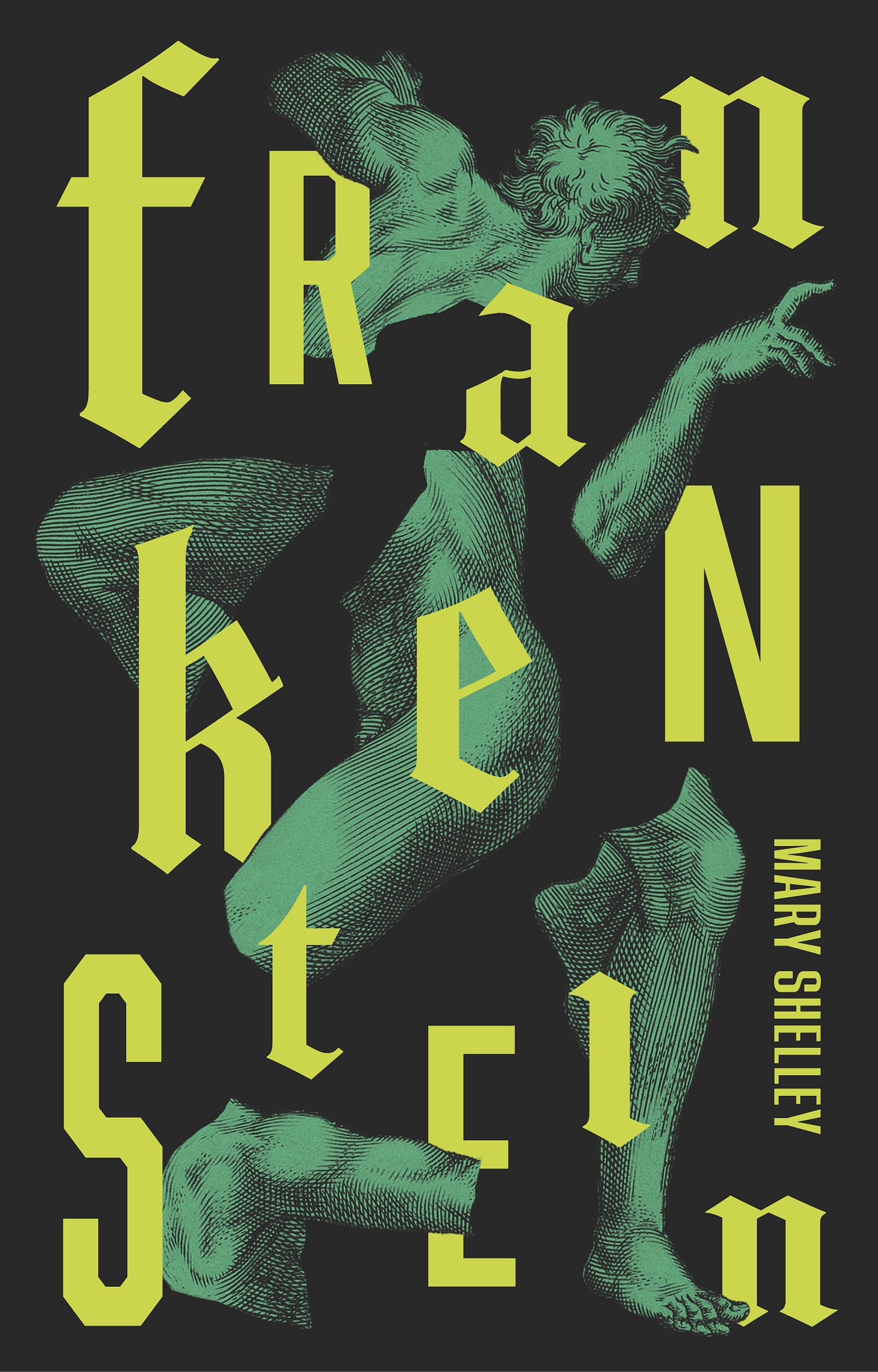
Here are four names, all novelists: Penelope Fitzgerald, Iris Murdoch, Kingsley Amis, Muriel Spark. Taken in a bundle, what do they tell us? How do they differ? How do their separate approaches compliment each other?
One way of answering this is to say: they are all short, comic, English writers of the second half of the twentieth with varying abilities to write about evil and pretensions and mid-life problems.
Another is to split off Amis, as the least interested in “ideas” as such and see him as a foil to the women’s deeper interest in religion, spirituality, the way people try to control each other, the way lives get out of control.
We might also see Amis as the one most interested in social manners, Spark as the one most interested in making a whirligig plot out of those manners which resolves itself dramatically but with a sharp moral twist, Murdoch as the one most interested in the convolutions of plot but also in the ideas of art and human love as the route to goodness, and Fitzgerald as the most subtle—being, as she is, interested in all of this.
This is all a simplification. I recommend: The Beginning of Spring, The Black Prince, The Old Devils, Loitering With Intent.
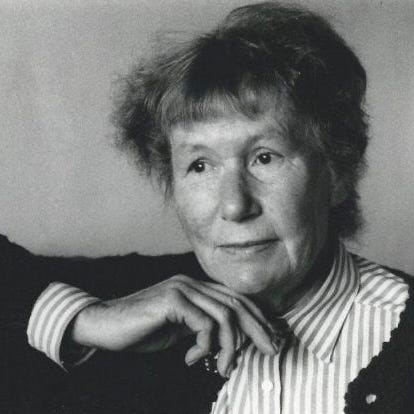
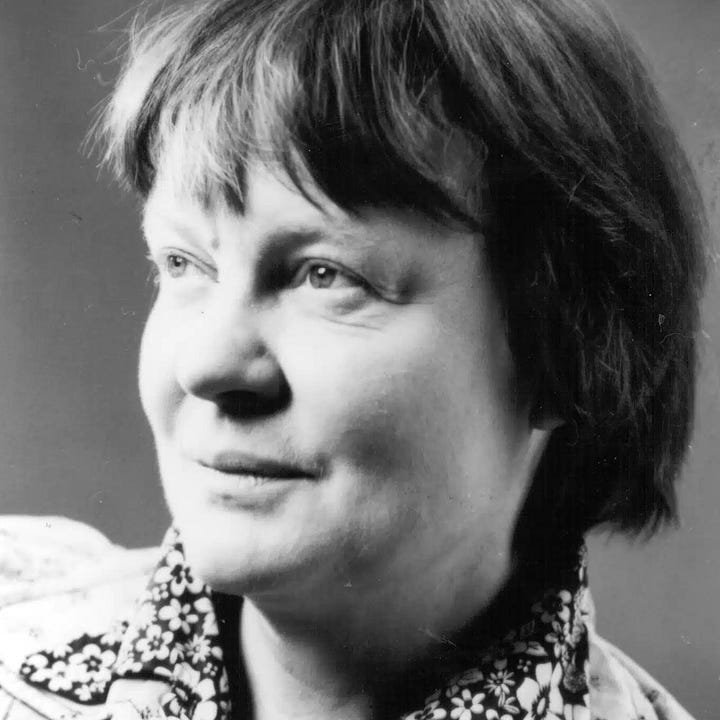
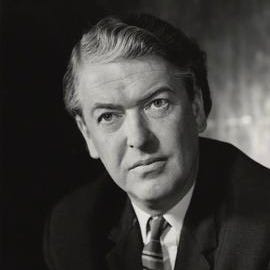
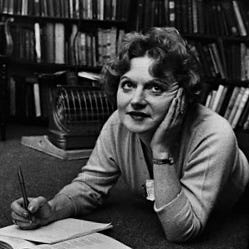
With the understanding you can say whatever you want since you’re English, who’s the greatest living American novelist?
Have I read enough to say? I admire Catherine Lacey, Brandon Taylor, Marilynne Robinson, Jonathan Franzen, Percival Everett . . . people like that.
Who are your five favorite novelists, ranked? Explain your ranking.
Haha, this serves me right for running my own GOAT competition. Without much thought:
Dickens
Austen
Penelope Fitzgerald
Susanna Clarke
Diana Wynne Jones
I can’t explain my ranking other than to say that I not only love these authors but think they have all done something original or exceptional. Austen invented the modern novel. Dickens has imaginative power akin to Shakespeare. There is no other book like Piranesi. Fitzgerald is singular in her ability to make the past seem not only real but very German, or very Russian, or whatever. Jones wrote exceptional “children’s” books that stay in my imagination very vividly. Few can match The Lives of Christopher Chant or Howl’s Moving Castle.
I chose only English authors because I know more about them and it makes the language comparisons fair.
Before going to jail for fraud, Sam Bankman-Fried famously (infamously?) declared Shakespeare overrated. As you know, Bankman-Fried found it unthinkable that the greatest English writer could have been born in the sixteenth century, given the relatively small pool of talent then compared to now. “The Bayesian priors,” he said, “aren’t very favorable.” What’s wrong with his approach to the question? What other mistakes do we make when judging literary greatness?
Well I think he was a bad Bayesian because he didn’t update his priors by looking at how and when great art is actually made. A lot of people who believe in markets seem to miss the point that Shakespeare has passed the market test in a major, major way.
Some who defended SBF wrote that admiring Shakepeare is all status play—we read him because we are told he is important and it is merely a way of signaling. I think that these people aren’t living in the real world.
The other mistakes about literary greatness . . . I think many people conflate critical and personal questions. The intensity of your love of an author is one very important marker, but far from the only one. Once you take a Darwinian view, not a Newtonian one, it gets easier to assess beetles as beetles as not as giraffes.
“A lot of people who believe in markets seem to miss the point that Shakespeare has passed the market test in a major, major way.”
—Henry Oliver
Clarify what you mean by Darwinian, not Newtonian.
I am hopefully writing about this elsewhere so won’t say too much, but some people have advocated rules of literature, like Aristotle’s unities, as if it were a Newtonian enterprise in which such “rules” can be “discovered.” (See also: all that terrible writing advice all over the internet: Be short! Vary your sentences! Blah blah.)
I see it as more of an ecosystem, with huge diversity, in which variation leads to speciation (genres) and where the influence of former writers is turned into something new (heritability). And of course every generation winnows.
When you interpret a novel, what are you looking for?
The heart asks pleasure first. But then I want to see how it is done. Usually the two go together. Agatha Christie is a wonderful plotter and you can go through and see her cleverness. Milton is endlessly fascinating because of the vast resources of his learning.
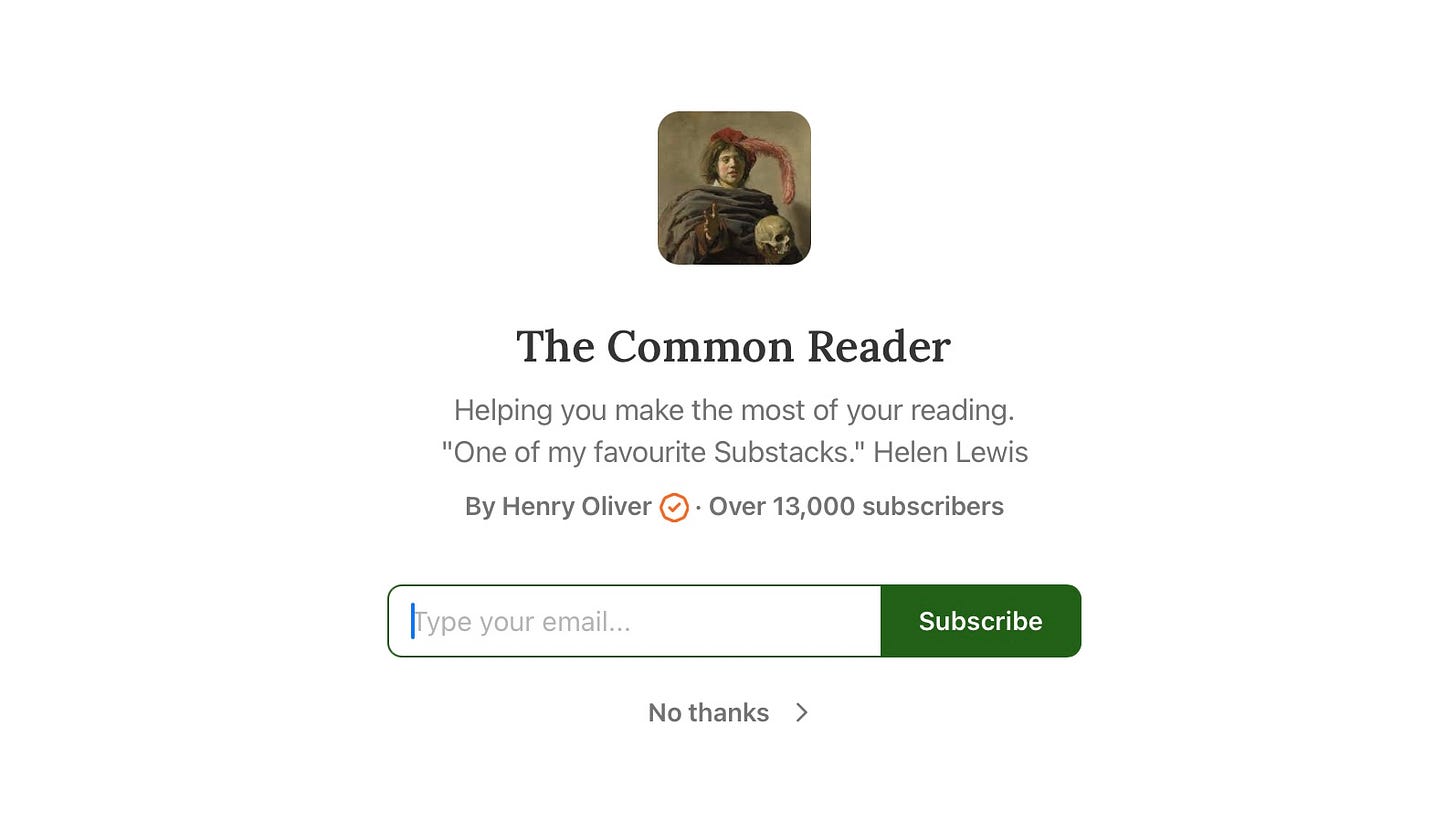
I’m floored by your range and the sheer scope of what you cover. I can only imagine this has to do with the accumulation of a vast amount of inputs over the years. What’s your method for retention and using your reading?
I am unmethodical, but these things must be part of it: large volume input, very interested, vain, and writing a blog.
You’ve advocated reading John Stuart Mill. How do we properly use ideas from the past when we no longer share the cultural or philosophical foundations that helped produce those thoughts in the first place?
In Mill’s case we do! He was a radical who now seems like a prophet of common sense.
Turning to your recent book, Second Act, what were some of your most surprising or counterintuitive findings about late-life success?
The whole book surprised me! I was particularly ignorant of network theory (good stuff), the research on happiness (I don’t believe a word of it), Katharine Graham (hero), the work about age and entrepreneurship (fascinating), and Audrey Sutherland (hero).

You profile several notable late bloomers in the book. Which accounts resonated most with you and why?
Samuel Johnson is my hero. I was obsessed with Thatcher when I was younger. Frank Lloyd Wright was new to me, and I ended up going to Wisconsin to see his buildings—the Orthodox Church in Milwaukee was one of the peak architectural experiences of my life. Katharine Graham hit me hardest. Her book is excellent.
But Audrey Sutherland is the one I try and push on everyone. She is so unknown and so impressive. Solo arctic explorations through her sixties and eighties! Her books are short, vivid, and compelling, and I cannot recommend them enough. Paddling North and Paddling My Own Canoe.
“Frank Lloyd Wright was new to me, and I ended up going to Wisconsin to see his buildings—the Orthodox Church in Milwaukee was one of the peak architectural experiences of my life.”
—Henry Oliver
Final question: You can invite any three authors for a lengthy meal. Neither time period nor language is an obstacle. Who do you pick, why, and how does the conversation go?
I’d like Austen to meet Johnson, so that’s two of them. And then I guess we need Boswell to write it all down!
That said, I love poetry perhaps more than prose, and this has all been very prosey. So maybe it would be Keats, Dickinson, Shakespeare? Wouldn’t you like to know how those three would get along? Do you know that poem by John Heath Stubbs, about the day Shakespeare died? That might be another answer to your question.
“Good neighbour Michael Drayton, and you, Old Ben
Stepped up from London to our Warwickshire—
The air is balmy, so we’ll drink tonight
under my mulberry tree, and hear the chimes.”But English April’s treacherous. Good ale and wine,
However generous they boast themselves,
Lower the temperature. The lurking microbe
Is everywhere, and waiting for its chance.Death’s always bitter—and pneumonia,
Though not the worst, isn’t a cosy end.
But this, at least, was after a good party—
Drinking with friends. And who wouldn’t like to have been
A caterpillar among those mulberry leaves,
To catch some of the talk that drifted upwards,
And pass it on when one had turned a moth.
I have this one memorized.
Thanks for reading! If you enjoyed this post, please hit the ❤️ below and share it with your friends.
Not a subscriber? Take a moment and sign up. It’s free for now, and I’ll send you my top-fifteen quotes about books and reading. Thanks again!
While you’re here: My wife and father-in-law had the fun of interviewing Henry recently for their podcast, The Double Win. Check it out.


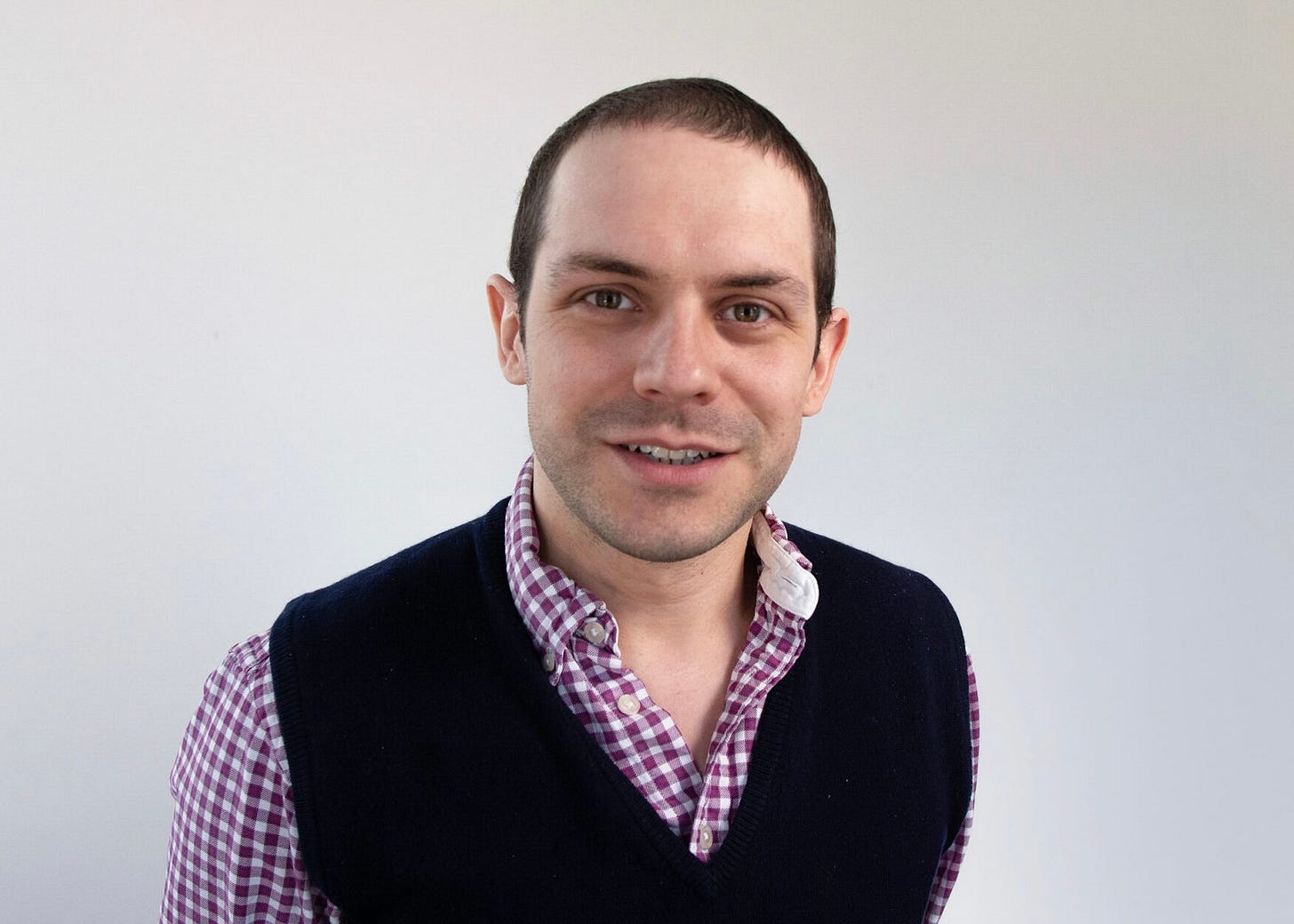
Knowing what mainstream literary scholars really talk about when they talk about books has helped me understand that there is more to studying media than just the media itself.
This was so much fun to read. Ordering Paddling My Own Canoe right now. I hope I grow up to be someone who confidently dismisses Shakespeare skeptics as not living in the real world.